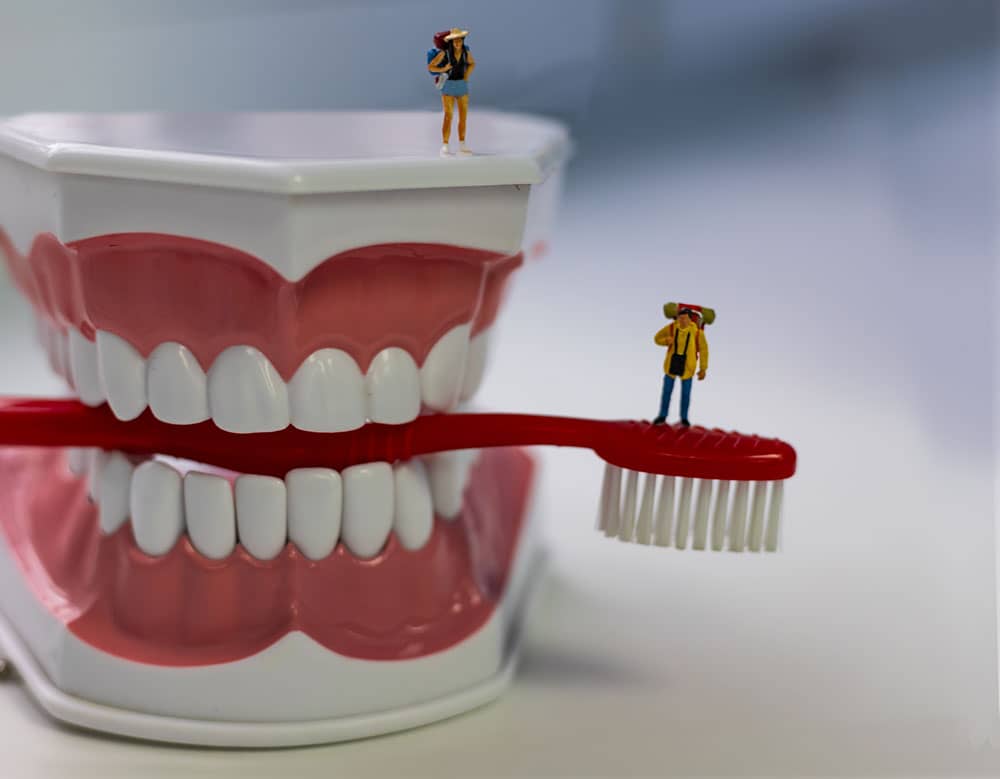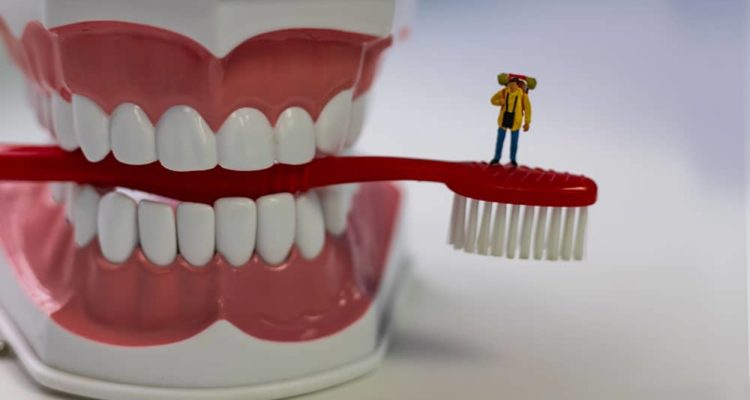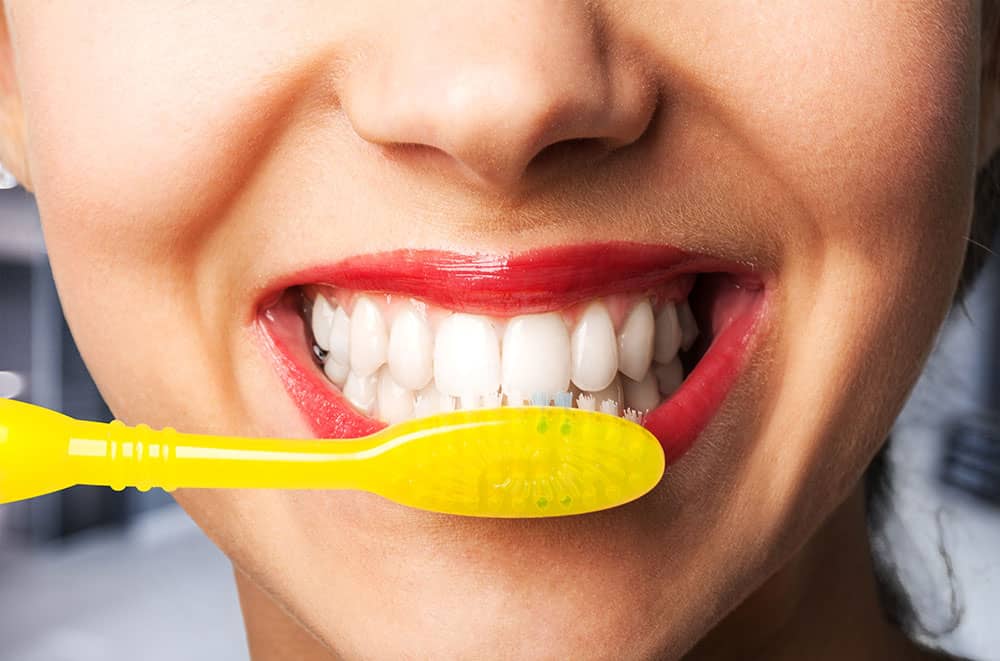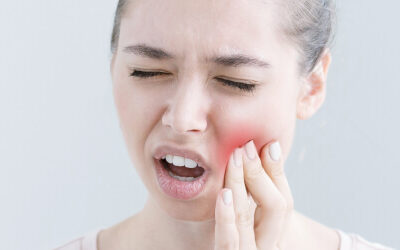If you strive to maintain optimal oral health, you probably brush your teeth at least twice a day and floss regularly. Perhaps you even brush your teeth after every meal or for extra long or with extra pressure to make sure your teeth are completely clean. But could you be doing too much of a good thing?
Can You Brush Your Teeth Too Much?
The answer is ‘yes’ and it is known as overbrushing or toothbrush abrasion. Here, we’ll look at the problems that can arise from overbrushing, how to brush properly, and what to do if you have already damaged your teeth from overbrushing.

What Is Overbrushing?
Overbrushing your teeth refers to brushing your teeth too often or too vigorously. It can put you at risk of a variety of dental problems. While it is far more common to deal with individuals who are not brushing enough, overbrushing is important to be aware of.
What Are the Side Effects of Overbrushing?
- Vigorous Brushing Weakens Your TeethBrushing too often or too harshly can cause tooth abrasion, which is the gradual wearing down of the protective layers over the tooth.Tooth abrasion is more likely if:
- You use too much pressure when brushing
- You brush more often than necessary
- Your toothbrush has abrasive bristles
- Overbrushing Can Cause Your Gums To RecedeBrushing too often or too vigorously can cause the gums to recede, exposing the delicate inner layers of the teeth.Without the protection of the enamel and cementum, the sensitive inner layer — dentin — is left vulnerable to trauma, acidic foods, plaque build-up, bacteria, and other damaging substances. This leaves teeth at a high risk of tooth loss, decay, and sensitivity to cold or hot foods.
What Are the Signs of Overbrushing?
Common symptoms of overbrushing include:
- Tooth sensitivity – If the enamel gets worn down and is unable to protect the sensitive inner parts of teeth, sensitivity can be heightened.
- Toothbrush damage – It is generally recommended to replace your toothbrush every three months. If your bristles are splayed and frayed before then, it may be a sign of using too much pressure during brushing.
- Receding gums – Gum recession can result from overbrushing and using too much pressure, making it easier for plaque and bacteria to accumulate in these areas. Gum recession can lead to further dental issues such as cavities and periodontal disease.
What Can Be Done If Teeth Have Been Damaged From Overbrushing?
It is important to see a dentist to address damage from overbrushing. Your dentist can recommend treatments to help protect the tooth and cover areas where dentin is exposed.
Who Is Most At Risk of Damage From Overbrushing?
While anyone can experience damage from overly aggressive brushing, you are more likely to experience damage if:
- You use a hard-bristled toothbrush
- You have a genetic predisposition to receding gums
- You grind or clench their teeth
- You have had braces
What Is the Proper Way to Brush Your Teeth?
To ensure you are using the proper brushing technique and thoroughly (yet safely) cleaning your teeth, here are some important tips to follow:
- Use the Proper Angle – Keep the tips of your toothbrush bristles at a 45 degree angle to your gumline when brushing.
- Don’t Apply Too Much Pressure – To effectively clean your teeth, you may feel you have to scrub vigorously, but gentle pressure and attention to detail is all you need. Use just enough pressure on your gums to feel the bristles. Don’t saw back and forth across your teeth. Instead, use a circular motion and short strokes.
- Choose A Soft Bristled Toothbrush – Stiff bristles increase the risk of gum recession and dental abrasion. Choose a toothbrush with soft bristles to gently yet effectively clean your teeth. If in doubt, ask your dentist for a recommendation for a good toothbrush.
- Read Your Toothpaste’s Ingredients – Look for a toothpaste without high abrasive agents as these can speed up the tooth loss process. Look for a toothpaste with ingredients such as fluoride and calcium to help support your tooth enamel.
- Avoid Brushing Immediately After Eating – Wait at least 60 minutes after drinking or eating to brush your teeth, especially after acidic items such as soda or lemons. Instead, chew sugarless gum or drink water while you wait to freshen up your teeth.
- Pay Attention To All Your Habits – Along with overbrushing, dental abrasion can also be caused by biting your fingernails, chewing on pens or ice cubes or other objects, opening bottles with your teeth, and other habits that consistently wear on your teeth. Tongue or lip piercings can also wear away at tooth enamel.
- Use the 2/2 Rule – When in doubt, try the 2/2 rule: Brush your teeth twice a day for two minutes a time. Many people prefer to brush their teeth right away in the morning and before bed. Brushing three times can be helpful if you ate a particularly sticky food or ate something with a strong aftertaste.
Do You Have Concerns About Overbrushing?
While we love seeing patients be enthusiastic about caring for their smile, it is important not to overdo it when it comes to brushing. Be sure to use the appropriate tools and be gentle yet thorough in your oral hygiene approach.
If you have any questions about how often you should be brushing, which toothbrush or toothpaste you should be using, or how to brush your teeth properly, our teamwould be glad to help you.






